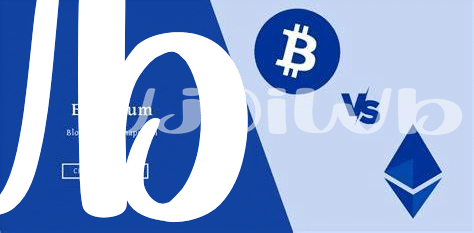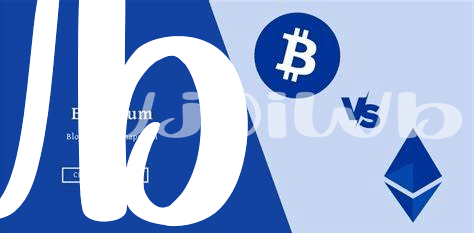Bitcoin Vs. Ethereum: Understanding the Giants 🌍

Imagine a world where two digital giants roam the land. One, known as the gold of the internet, is a pioneer of sorts, paving the way for what we recognize today as cryptocurrency. This titan values simplicity and security, focusing on being a store of value, much like digital gold. On the other side, we have a younger, more versatile giant, equipped with a toolkit that’s shaking up the digital realm. This giant doesn’t just carry value; it enables users to create agreements that automatically execute when certain conditions are met, thanks to something called smart contracts. These aren’t just any contracts but ones that remove the need for a middleman, making transactions direct and efficient.
These giants aren’t just coexisting; they’re shaping the future of digital transactions and online agreements. While the first giant, Bitcoin, excels in providing a secure and robust system for storing and exchanging value, Ethereum goes a step further by enabling these revolutionary smart contracts. This difference is akin to comparing a safe to a smartphone. Both are invaluable, but one offers a myriad of functionalities beyond its primary purpose. Their impacts on the world are profound, with Ethereum’s flexibility and adaptability presenting new opportunities that could potentially change how we interact with the digital world.
| Characteristic | Bitcoin | Ethereum |
|---|---|---|
| Purpose | Digital Gold | Decentralized Platform |
| Key Feature | Store of Value | Smart Contracts |
| Launch Year | 2009 | 2015 |
| Innovation | First Cryptocurrency | Programmable Transactions |
What Makes Ethereum’s Smart Contracts Special? 🔍
Imagine opening the door to a world where agreements are executed flawlessly without the need for a middleman. That’s the beauty of Ethereum’s smart contracts. These aren’t your traditional contracts written on paper but are instead digital agreements stored on the blockchain. What sets them apart is their ability to automatically carry out the terms of an agreement once certain conditions are met. This means, when two parties agree on something, there’s no backtracking, no room for error, and no need for an expensive intermediary. It’s like having a robot mediator that’s always fair, never sleeps, and doesn’t charge by the hour. This trait not only streamlines transactions but also opens the door to countless applications, from simplifying lending and trading to revolutionizing how we vote and manage identities. The versatility and efficiency of smart contracts have positioned Ethereum as a powerful player in the blockchain realm, challenging Bitcoin’s primary role as a digital gold. To understand more about how Ethereum’s functionality diverges from Bitcoin’s store of value and the potential regulatory risks impacting investments in both, visit https://wikicrypto.news/ethereums-functionality-vs-bitcoins-store-of-value.
The Ripple Effect: Ethereum’s Impact on Bitcoin 🌊

Ethereum is like the new kid on the block that’s shaking things up for the original cryptocurrency giant, Bitcoin. While Bitcoin introduced us to digital money that operates outside of traditional banking systems, Ethereum took it a step further by introducing something called smart contracts. Think of these as automatic agreements that don’t need a middleman to execute. This capability has not just turned heads; it’s starting to shift how people view the use of blockchain technology beyond just currency.
This shift has sparked a conversation on whether Ethereum’s versatility could challenge Bitcoin’s top spot. 🤷 With Ethereum providing a platform where developers can build all kinds of apps that automate, secure, and manage transactions in new ways, it’s not just a currency but a whole ecosystem. 💡 This broadens its appeal and usage, potentially impacting Bitcoin’s reign by attracting a crowd that’s interested in more than just a digital form of money. As Ethereum carves out its niche, it poses an intriguing question about the future dynamics between these two blockchain pioneers. 🚀
Can Smart Contracts Dethrone Bitcoin’s Dominance? 🤔

When diving into the world of digital currencies, many wonder whether the innovative features of Ethereum’s smart contracts pose a challenge to Bitcoin’s crown. Imagine a world where financial agreements can execute themselves automatically under specific conditions, without the need for middlemen. This is what Ethereum’s smart contracts offer, setting the stage for a transformative era in how we handle transactions. These contracts are not just about sending and receiving money; they’re about automating all kinds of agreements, from insurance policies to property sales. This opens up countless possibilities, putting Ethereum in the spotlight and making some question Bitcoin’s long-standing dominance. However, understanding the nuances of these two giants is crucial for anyone stepping into this arena. To grasp the depth of this debate, including what are the risks of bitcoin versus ethereum, is essential for making informed decisions in the ever-evolving cryptocurrency world.
Real-world Examples of Ethereum’s Growing Influence 📈
Ethereum is rapidly changing the game, making waves in industries far beyond just finance. Take, for instance, the world of art and collectibles. Thanks to Ethereum’s smart contracts, artists can now tokenize their work as unique digital assets, known as NFTs (Non-Fungible Tokens), allowing them to sell their pieces directly to collectors without intermediaries, ensuring authenticity and ownership. In the realm of gaming, Ethereum enables players to truly own in-game items and even earn real money through play-to-earn models. Beyond entertainment, businesses are starting to implement Ethereum’s smart contracts to streamline operations, from automating supply chain management to revolutionizing real estate transactions. These real-world applications not only highlight Ethereum’s growing influence but also showcase how its technology is finding utility in various sectors, planting seeds for a future where its role in our everyday lives could be as ubiquitous as the internet.
| Sector | Application | Impact |
|---|---|---|
| Art & Collectibles | NFTs for direct artist-to-collector sales | Revolutionizes ownership and authenticity |
| Gaming | Play-to-earn models & ownership of in-game items | Empowers players financially and enhances game immersion |
| Business Operations | Automated agreements & transactions | Increases efficiency and reduces costs |
The Future: Coexistence or Clash of Titans? ⚔️

As we stand on the brink of technological evolution, the dance between Bitcoin and Ethereum continues. These two giants of the crypto world, each with its unique strengths, have long sparked debates about which will ultimately claim supremacy. Ethereum, with its smart contract capabilities, offers a dynamic platform that goes beyond mere transactions, enabling decentralized applications (DApps) to flourish. This feature alone has propelled Ethereum into the spotlight, raising questions about Bitcoin’s continued dominance in the digital currency space. However, Bitcoin holds its ground with a robust and tested network, revered for its stability and security. It remains the go-to digital gold, a safe haven during turbulent market conditions, thanks in part to its simplicity and widespread acceptance. The intriguing question is whether these two can coexist harmoniously or if the advancements of one will overshadow the other. For a deeper understanding of this dynamic, consider why is bitcoin valuable versus ethereum, which dives into the core differences and potential future scenarios between these cryptocurrencies. As the crypto landscape evolves, it becomes increasingly clear that the success of one does not necessarily have to spell the downfall of the other. Instead, their continued coexistence could herald a new era of blockchain utility and digital finance, forging paths previously unimaginable. With each playing to its strengths, the future might not be a battleground but a thriving ecosystem where both Bitcoin and Ethereum contribute to the tapestry of blockchain technology and its applications. 🌐🚀
